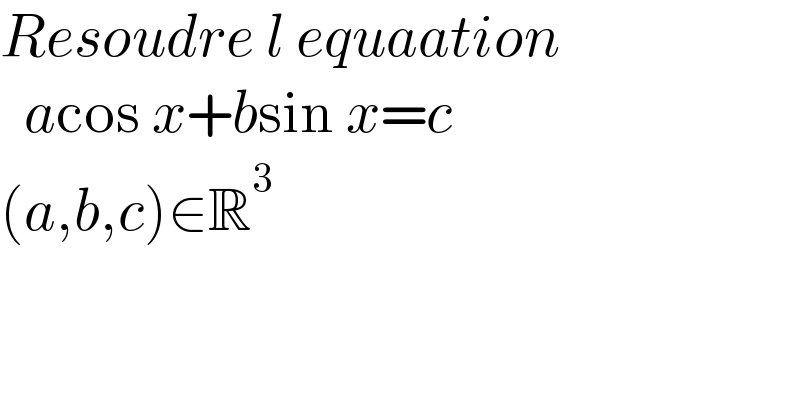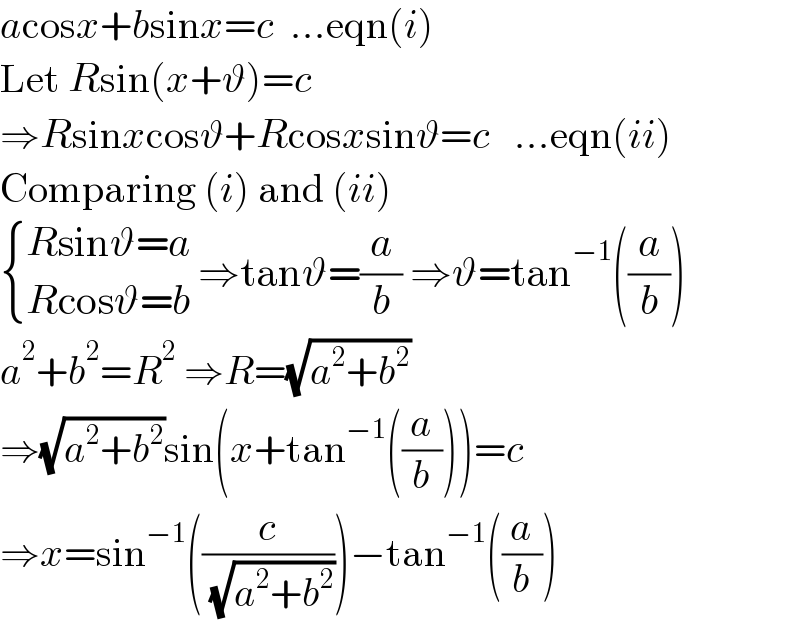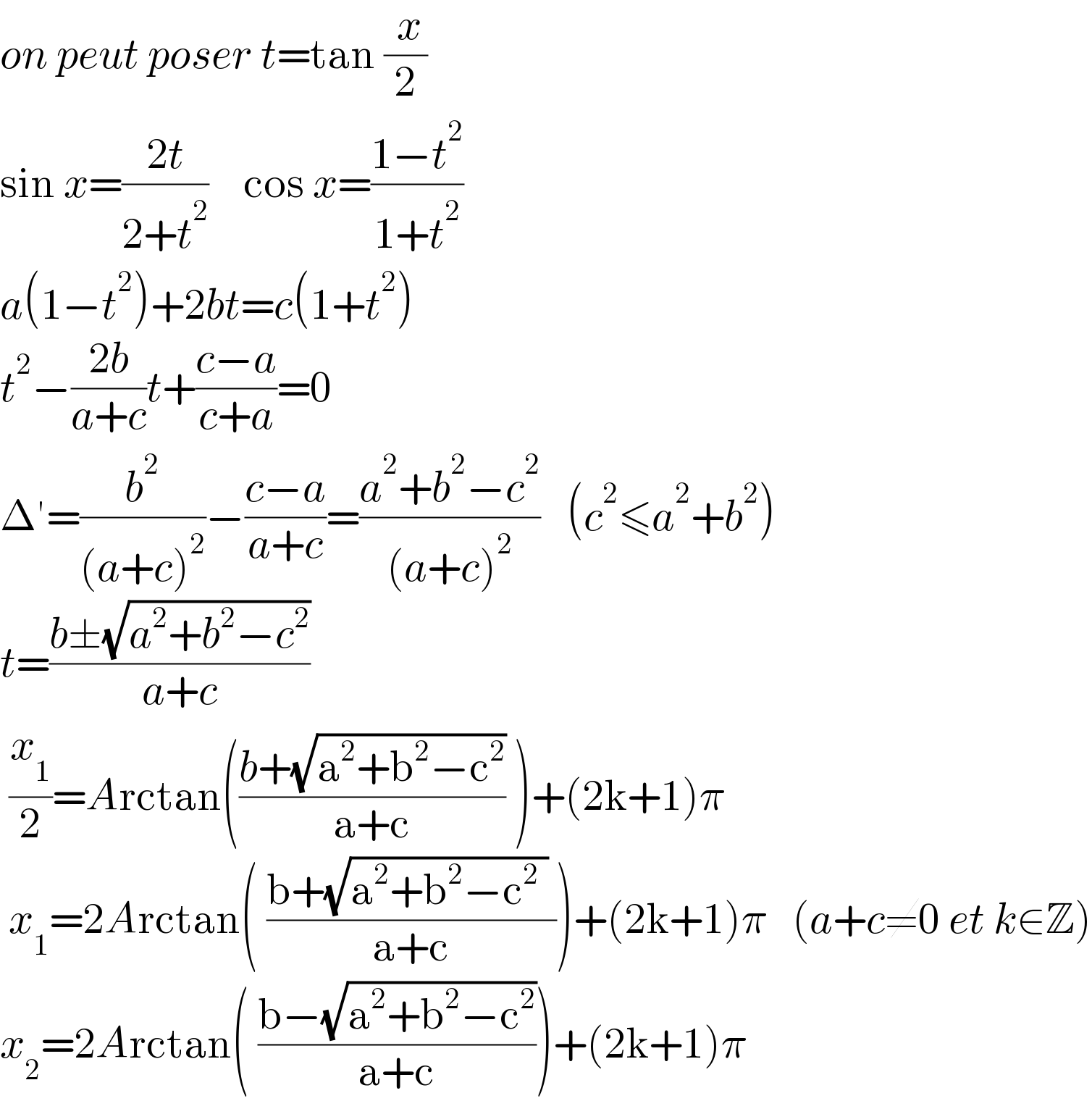Question Number 177306 by a.lgnaoui last updated on 03/Oct/22

Answered by Ar Brandon last updated on 03/Oct/22

Commented by a.lgnaoui last updated on 03/Oct/22
![sin (x+tan^(−1) ((a/b)))=(c/( (√(a^2 +b^2 )))) x+tan^(−1) ((a/b))=sin^(−1) ((c/( (√(a^2 +b^2 ))))) x+α=β⇒x=β−α x=[sin^(−1) ((c/( (√(a^2 +b^2 )))))−tan^(−1) ((a/b))]](https://www.tinkutara.com/question/Q177311.png)
Commented by a.lgnaoui last updated on 03/Oct/22

Commented by a.lgnaoui last updated on 03/Oct/22

Answered by a.lgnaoui last updated on 03/Oct/22

